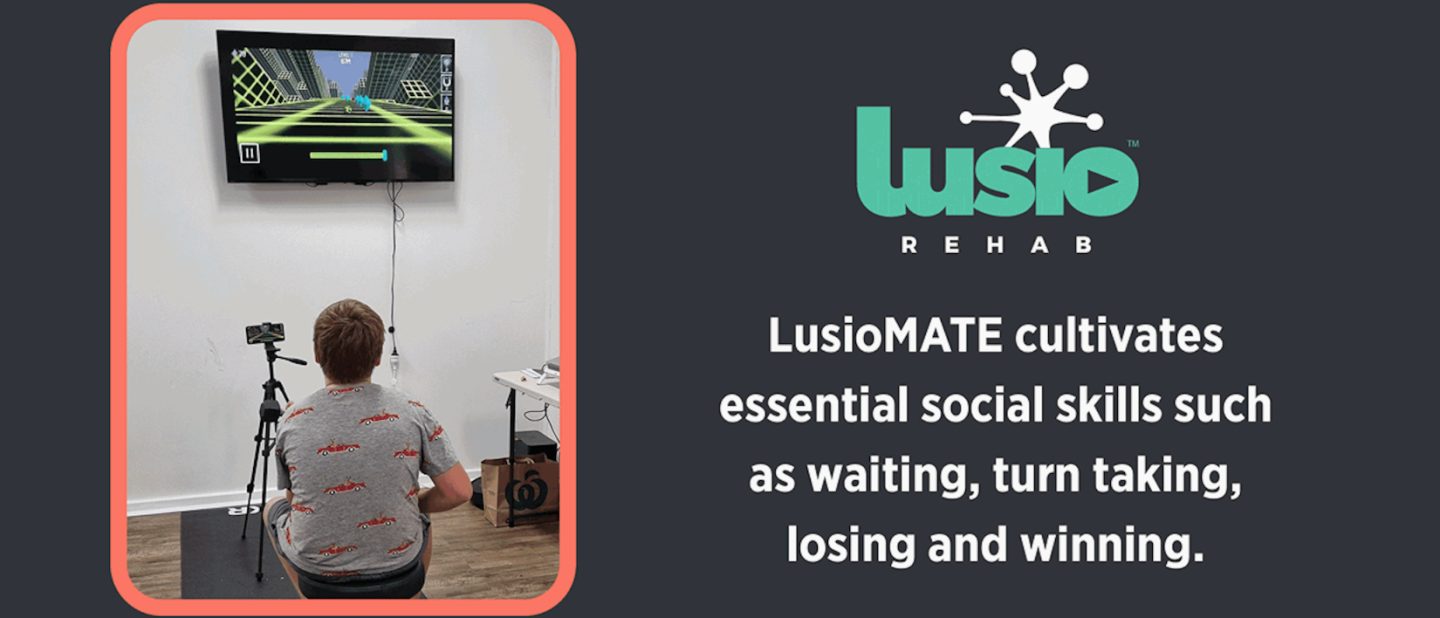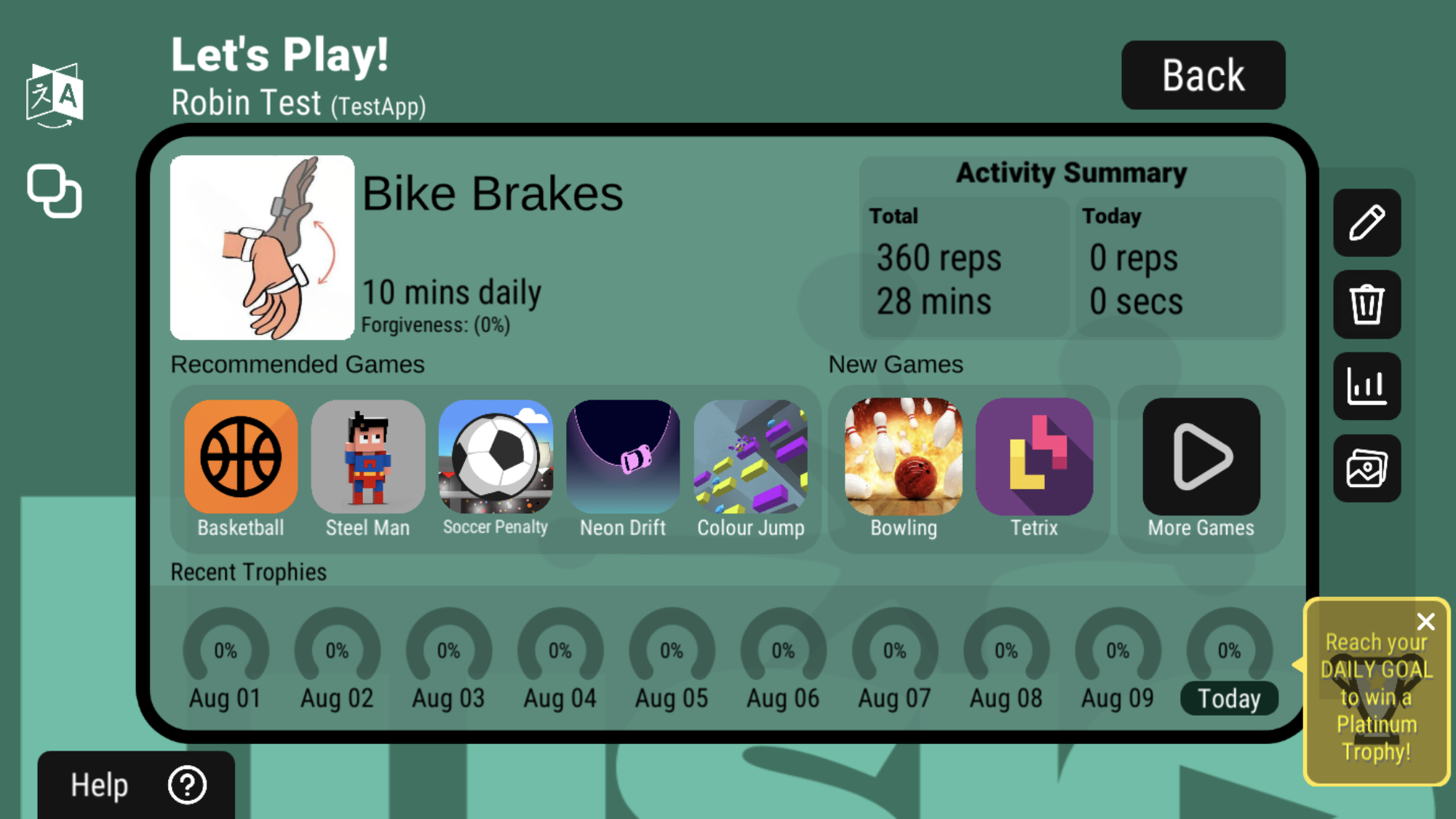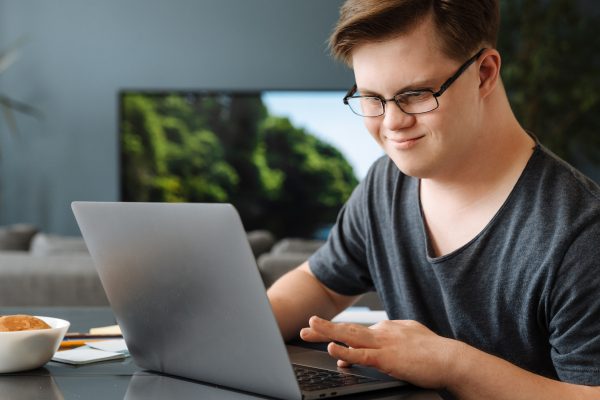
Therapist’s POV: From Play to Progress
LusioMATE’s innovative game-based platform empowers autistic children to get the most out of physiotherapy – and have fun in the process, explains Katherine Granich.
Allied health practitioners are always on the lookout for effective, personalised ways to engage and support children with a range of diverse needs. And any child who’s been prescribed a physiotherapy programme will tell you – probably in no uncertain terms – that they don’t want to participate unless they’re enjoying themselves!
For autistic children, motor control difficulties, coordination problems, and sensory challenges present their own set of unique obstacles for which physiotherapy can make a significant difference. This is where LusioMATE comes in, combining innovative technology with evidence-based interventions to create interactive physical therapy games that meet the all-important “needs to be fun” criteria.
Deb Mitchell of Wild Child Physiotherapy (facebook.com/ wildchildphysio), based in Western Australia, says LusioMATE has become an indispensable therapeutic tool – particularly for her neurodivergent clients. “I use LusioMATE with clients who are between three and 14 years,” she says. “Not only do the children love it, it’s portable and easy to take along whether I’m seeing clients out in the community or in clinic.”
Deb has been incorporating LusioMATE into her practice for about three years now, witnessing its transformative impact firsthand. She uses LusioMATE as part of her clients’ interventions targeting proprioception and motor planning, but says its versatility is evident across various therapeutic domains. “I don’t use LusioMATE in isolation – it’s part of my arsenal of tools.”
For Deb’s autistic clients, a compelling aspect of LusioMATE is its ability to facilitate social interaction and peer engagement. She’s seen great things happen in sessions where friends, siblings, or other family members play with LusioMATE together or taking turns.
“Two of my autistic clients – a nine- year-old and 12-year-old – work together in peer physiotherapy sessions with goals around motor planning. We use the prompts ‘think/plan/do’, where each child thinks about a movement, plans how they would do it, and then executes the movement,” she explains.
“One of the children will be playing a LusioMATE game, but may be having a hard time making sense of the visual information he’s getting from the screen and the physical information from his body. I’d prompt his partner to watch how his peer is moving and ask him to provide some advice on how the game player could refine his movements to be more successful with the game,” Deb says. “The child playing the game then has the multiple benefits of visual feedback from the screen, verbal commentary from his peer, physical information from his own body and, when necessary, input from the physiotherapist.”

The varied sensory feedback from LusioMATE’s games can help autistic children process sensory information more effectively, aiding in sensory integration and motor skills development. Its instant feedback and reward system acts as positive reinforcement, encouraging children to continue engaging with the therapy, holding their attention, and turning their therapy goals into a fun, interactive experience – not a chore.
Deb often “saves” LusioMATE as the last activity of a physiotherapy session, as it serves as a great incentive for some of her clients to complete their other exercises. “It cultivates essential social skills such as waiting, turn-taking, losing, and winning – core competencies for navigating social interactions, both in physio sessions and on the playground.”
Autistic children find routine and predictability to be extremely important in helping them navigate the world, and the structured nature of the games provides a predictable and comfortable framework for autistic children, supporting their need for routine while engaging in therapeutic activities.
Transitioning between activities can be particularly challenging for children with autism, leading to frustration and resistance. Deb acknowledges that building capacity can be tricky, as LusioMATE is incredibly compelling for her clients, who often want to “sneak in” a few more minutes on the system whenever they can. “I use timers, verbal reminders, and other cues to help instil a sense of routine, predictability, and fairness,” she explains. “It’s a great opportunity to use some of the strategies the child’s family might be already using at home, school, or in other therapies.”
For another of Deb’s autistic clients, a five-year-old, there were some frustrations when it came time to end the session where LusioMATE was being played. “One of the strategies his family had implemented at home was to use a timer to help transition to the next activity. We used this same cue to finish our physiotherapy sessions, transitioning to end the game and go home,” she explains. “For the first six sessions, the child had a hard time turning off the game when it was time to leave.
But we continued to use the strategies consistently, and at the next session, he went happily out the door – it was a real win!”
Deb underscores LusioMATE’s role in strengthening the therapeutic alliance, both between herself and her clients, as well as the child’s other therapists – speech pathologists and occupational therapists, for example. Deb can tailor LusioMATE’s games to each child’s specific therapeutic goals, ensuring activities are both achievable and challenging, promoting skill development at a comfortable pace.
For parents considering LusioMATE as a therapeutic option for their child, Deb emphasises the importance of seeking out qualified therapists who can integrate LusioMATE seamlessly into therapy plans, ensuring that it complements rather than replaces traditional therapeutic approaches. Through its innovative blend of technology and therapy, LusioMATE empowers autistic children to reach their full potential, one interactive gaming session at a time.
“Physiotherapy does take time and persistence,” Deb concludes. “But after playing LusioMATE, the children always want to come back next week!”
GAMIFYING THERAPY
LusioMATE transforms physical therapy into a fun, game-based experience, greatly motivating kids to reach their movement goals.
USER-FRIENDLY AND ADAPTABLE: Easy to set up with a friendly interface, it’s designed for personalised therapy, ensuring activities meet specific client needs.
PORTABLE AND ACCESSIBLE: Compact and wearable, LusioMATE works anywhere, anytime—ideal for maintaining routines during breaks or travel.
COMPREHENSIVE SUPPORT: Supports a range of skills from motor to cognitive, with remote monitoring by therapists for tailored adjustments.
AFFORDABLE UNDER NDIS: Recognised as a low-risk assistive technology, making it more accessible through NDIS plans.








